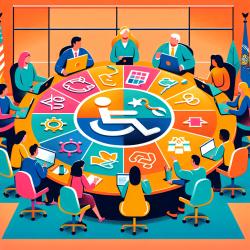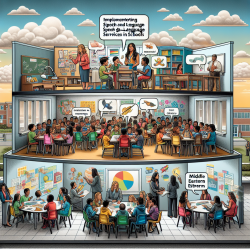The council's mission is to enhance the education of children with disabilities by offering broad-based input to the Department of Public Instruction (DPI) and its Division for Learning Support (DLS). This ensures that policies and programs are tailored to meet the diverse needs of these students.
Key Responsibilities of the Council
The Wisconsin Council on Special Education is tasked with several critical responsibilities, including:
- Advising the State Superintendent on unmet needs: The council identifies gaps in the education system for children with disabilities and provides recommendations to address these needs.
- Commenting on proposed rules and regulations: The council publicly comments on any proposed changes to rules or regulations regarding the education of children with disabilities in Wisconsin.
- Developing evaluations and reporting data: The council assists in developing evaluations and reporting on data to the Office of Special Education Programs (OSEP) under IDEA.
- Creating corrective action plans: The council advises on the development of corrective action plans to address findings from federal monitoring reports under IDEA.
- Coordinating services: The council helps in the development and implementation of policies that coordinate services for children with disabilities.
Membership and Terms
Members of the Wisconsin Council on Special Education are appointed by the State Superintendent for alternating three-year terms, beginning in September each year. This ensures a steady flow of fresh perspectives and sustained expertise on the council.
Why This Matters
The work of the Wisconsin Council on Special Education is vital for several reasons:
- It ensures that the voices of stakeholders, including parents, educators, and specialists, are heard and considered in policy-making.
- It helps to identify and address gaps in the education system, ensuring that all children with disabilities receive the support they need to succeed.
- It provides a structured way for continuous improvement in special education services through evaluations, data reporting, and corrective action plans.
By understanding and supporting the council's work, schools and educators can better serve their students with disabilities, creating an inclusive and effective learning environment for all.
For more information, please follow this link.










